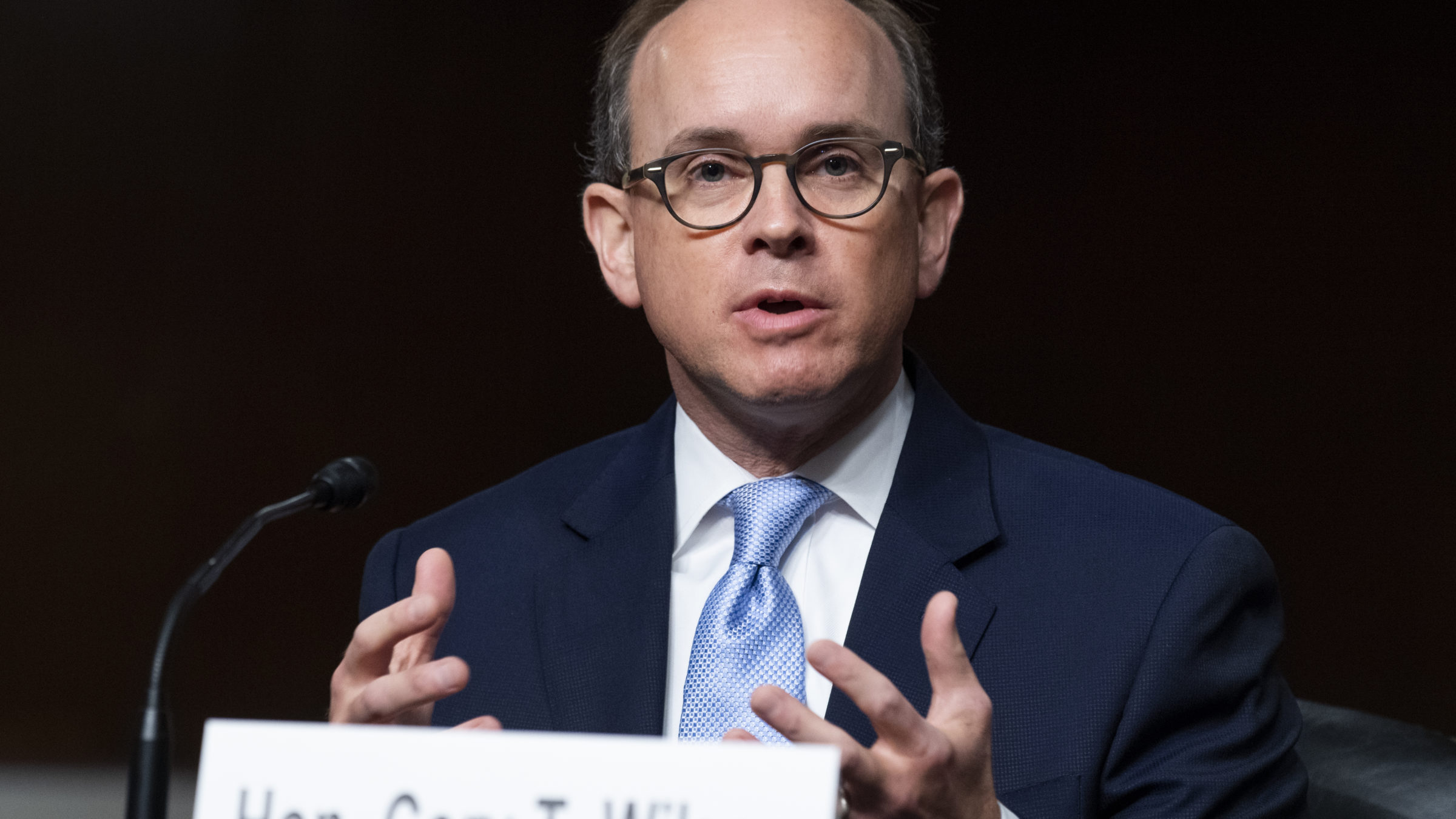The Fifth Circuit Court of Appeals has historically been among the nation’s most conservative federal appeals courts. This is particularly true where abortion is concerned: Well before President Donald Trump’s nominating spree stacked the court with fringe right-wingers, it was instrumental in enabling the efforts of Texas, Louisiana, and Mississippi lawmakers to undermine reproductive rights. Today, 12 of the court’s 17 members are Republican appointees, and 6 of those 12 were nominated by Trump. With numbers like these, oral arguments have become genuinely unhinged of late, as evidenced by the latest go-round over Texas’ six-week abortion ban earlier this month.
A quick refresher: In December, the U.S. Supreme Court allowed abortion providers to move forward with a small portion of their federal challenge to SB8, the state’s latest dystopian bid to legislate Roe v. Wade out of existence. Although SB8 remains in effect, the Court allowed abortion providers to sue a limited number of state medical licensing officials involved in the SB8 enforcement process. The state, unsatisfied with this outcome, quickly asked the Fifth Circuit to decide whether the Texas state Supreme Court should review the case before any federal litigation can continue.
For a state court to perhaps second-guess the U.S. Supreme Court like this is so rare that the lawyer for the state of Texas admitted to the Fifth Circuit that she couldn’t think of another time it had happened. But for Texas lawmakers, this is less about substance than it is about running out the clock: If the state were to succeed in diverting this case from federal court, the abortion providers’ lawsuit—and, thus, access to abortion care for millions of Texans—would stall a little longer. As expected, the Fifth Circuit didn’t take long after oral argument to side with Texas, punting the case back to the state supreme court on January 17.
The hearing that preceded this decision largely flew under the media radar, since it took place at the same time as Supreme Court oral argument in the Biden administration’s vaccine mandate cases. Fortunately for the anti-choice contingent, their side couldn’t have drawn a more receptive audience: An old-school conservative judge, Reagan appointee Edith Jones, joined forces with one of the very worst Trump appointees, Kyle Duncan, to create a sort of right-wing troll Voltron. Duncan spent his time complaining that he didn’t “understand the urgency” of acting. In the conservative brain, if the Supreme Court narrows the scope of a lawsuit seeking to defend a constitutionally-protected right, there’s no rush to allow anyone to pursue what’s left of it.

Fifth Circuit Judge Cory Wilson, seen here thinking about all the bad tweets he never got to send (Tom Williams/CQ-Roll Call, Inc via Getty Images)
Jones made clear that she is more than fine with enabling Texas’s transparent delay tactics. “Maybe we should just sit on this until the end of June,” she mused, and “leave the hot potato with the Supreme Court.” The reference here is to the much-anticipated decision in the fight over Mississippi’s 15-week abortion ban, which could very well render this litigation irrelevant. What Jones doesn’t quite say, although she comes close, is that if the Supreme Court overrules or hollows out Roe v. Wade in June, Texas wins here, too, without requiring her to do any more work.
The lone liberal on the three-judge panel—Judge Stephen Higginson, appointed by President Barack Obama in 2011—spent the hearing getting more or less openly bullied by his colleagues. When Higginson, who wrote a furious dissent from the Fifth Circuit’s decision to hear oral argument in the first place, asked questions that Jones deemed too critical of Texas’s position, she was ready with the performative scold. “This court doesn’t litigate on behalf of one side or the other,” she reminded him. Later, when she tried to interrupt another of Higginson’s lines of questioning, he’d clearly had enough. “I am asking counsel the question,” he snapped.
Tense exchanges like this are becoming the norm on the Fifth Circuit, where Jones and Duncan are hardly outliers. In November, a three-judge panel of Jones, Duncan, and Kurt Engelhardt temporarily blocked enforcement of a federal vaccine-or-test rule with the absolutely deranged observation that COVID-19 is “non-life threatening to a vast majority of employees.” In a 2019 case related to the Affordable Care Act, George W. Bush appointee Jennifer Walker Elrod approvingly quoted a Tea Party member of Congress who called the ACA “a fraud on the American people.” Always competing for attention from right-wing media is Judge James Ho, who thinks vaccine mandates are unconstitutional if they hurt the feelings of religious conservatives. And where Ho, Jones, and Duncan occasionally behave like robed Twitter trolls, Cory Wilson literally was one: Wilson, whose nomination was rammed through the Senate at the height of the first COVID-19 wave in 2020, tweeted about #CrookedHillary and “King Barack” before his confirmation to a life-tenured seat on a federal appeals court.
While there can be a sort of dark hilarity in marveling at how bad things in this Circuit have gotten, the awful decisions they crank out have profound real-world consequences. The roughly 37 million residents of Texas, Louisiana, and Mississippi, which together comprise the Fifth Circuit, are at the mercy of a court on which nearly three-quarters of members were appointed by Republican presidents. (These judges also look nothing like the people they ostensibly serve: In a circuit where nearly 30 percent of people are non-white, less than 20 percent of Fifth Circuit judges are non-white; less than 25 percent of them are women.) The people of Texas, Louisiana, and Mississippi deserve far better than this clown car of reactionary ideologues. Unfortunately, this clown car of reactionary ideologues is what they’re stuck with for the foreseeable future.

